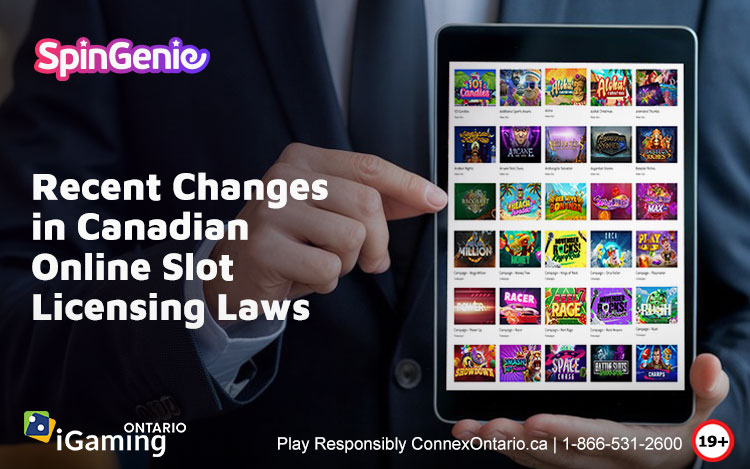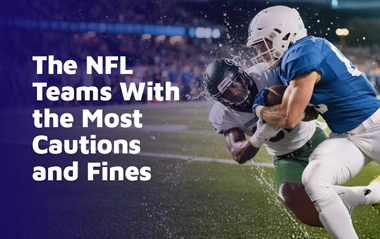The Canadian online gambling industry is still relatively new. Until 2022, all gambling activities in Canada were regulated under the Criminal Code under federal law. However, this has been quickly changing since Ontario regulated the iGaming market in 2022, setting the pace for other provinces. Since then, there have been many big changes to Canadian online slot licensing laws.
Interestingly, online slots Ontario laws are the most elaborate, and they are serving as a blueprint for other provinces across Canada. Here’s a look at the recent changes in Canadian online slot licensing laws.
Stricter Advertising Rules
More Canadians are trying their luck at online gambling, especially since regulation began. Recent research reveals that over 19 million Canadians regularly gamble online. And, as is the trend everywhere, most prefer slot games. Unfortunately, some Canadians tend to over-indulge, putting themselves at risk of addiction.
300,000 Canadians were at risk of becoming addicted to gambling in 2018, according to CBC. Notably, this was four years before regulation began, although the impact of licensing on players has been positive. To this end, this number could be much higher today, considering that online slot sites are easier to access.
With this in mind, Canada is introducing stricter iGaming advertising rules. The idea is to reduce Canadians’ exposure to gambling content. Obviously, gambling ads can entice more people to start betting, possibly leading to more addicts.
For example, celebs, athletes, and influencers cannot appear on ads in Ontario. Moreover, advertisers cannot use terms like risk-free. They can’t try to appeal to more people by emphasizing their bonuses, either. Notably, operators risk fines of over $100,000 for every violation.
Stricter Responsible Gambling Requirements
In addition to stricter advertising rules, Canada is also introducing stronger responsible gambling rules to curb addiction. There are two objectives with this. First, to prevent more people from falling into gambling addiction. Second, to help the Canadians already addicted to gambling manage their problem.
It is now mandatory for operators to provide responsible gambling tools in Ontario and other provinces. For example, all operators must verify their players’ ages. What’s more, they must offer self-exclusion programs for periods ranging from six months to one year or permanently. British Columbia, Alberta, and Quebec also have similar laws. It is worth mentioning that Canada still doesn’t have a multi-province self-exclusion program. However, the various provinces are already in talks to establish one.
Besides self-exclusion and age verification, Canadian online slot licensing laws and require operators to offer the following responsible gambling tools:
- Deposit limits
- Time limits
- Loss limits
- Reality checks
- Time-outs
While these tools can be helpful, players struggling with addiction may need deeper support. To this end, various provinces fund treatment programs and helplines for problem gambling. Notably, Ontario has the strictest laws for responsible gambling tools, followed by British Columbia and Quebec.
Interestingly, Canada is also leveraging AI technology to enforce responsible gambling. For example, slot sites now use AI to detect problem gambling signs like chasing losses and prolonged betting.
New Measures to Restrict Offshore Slot Sites
Canadians could always access offshore slot sites even before regulation started. While it was illegal, the federal and provincial governments didn’t do much about it. However, that is now changing as various provinces take stricter measures against unregulated operators.
Offshore slot sites are a problem in Canada for various reasons, including the following:
- It denies the federal and provincial governments revenue through tax evasion.
- Not all sites have responsible gambling tools like self-exclusion.
- There is no recourse for players who have complaints against the sites.
To this end, many provinces are introducing stronger Canadian online slot licensing laws restricting access to offshore sites. Some of the measures they are using include the following:
- Advertising Restrictions: Offshore slot sites can’t advertise in most Canadian provinces.
- ISP Blocking: Many provinces are enforcing geolocation restrictions for unregulated slot sites.
- Payment Restrictions: Regulators are working with banks and other payment service providers to block transactions to offshore casino sites.
- App Restrictions: Some provinces are working with Google and Apps to remove unlicensed apps from Canadian app stores.
Interestingly, Quebec has the strictest measures against offshore slot sites, followed by Ontario. Unfortunately, players still find ways to get around most of these restrictions.
The Future Looks Bright
As mentioned earlier, the iGaming industry is still quite new. While Ontario is adapting and expanding quickly, many other provinces are still slow to catch up. For example, British Columbia and Quebec only have one licensed online casino each. However, all provinces are currently making and implementing plans to open up their markets to more operators. As such, the future looks bright for online casino sites and players in Canada.








